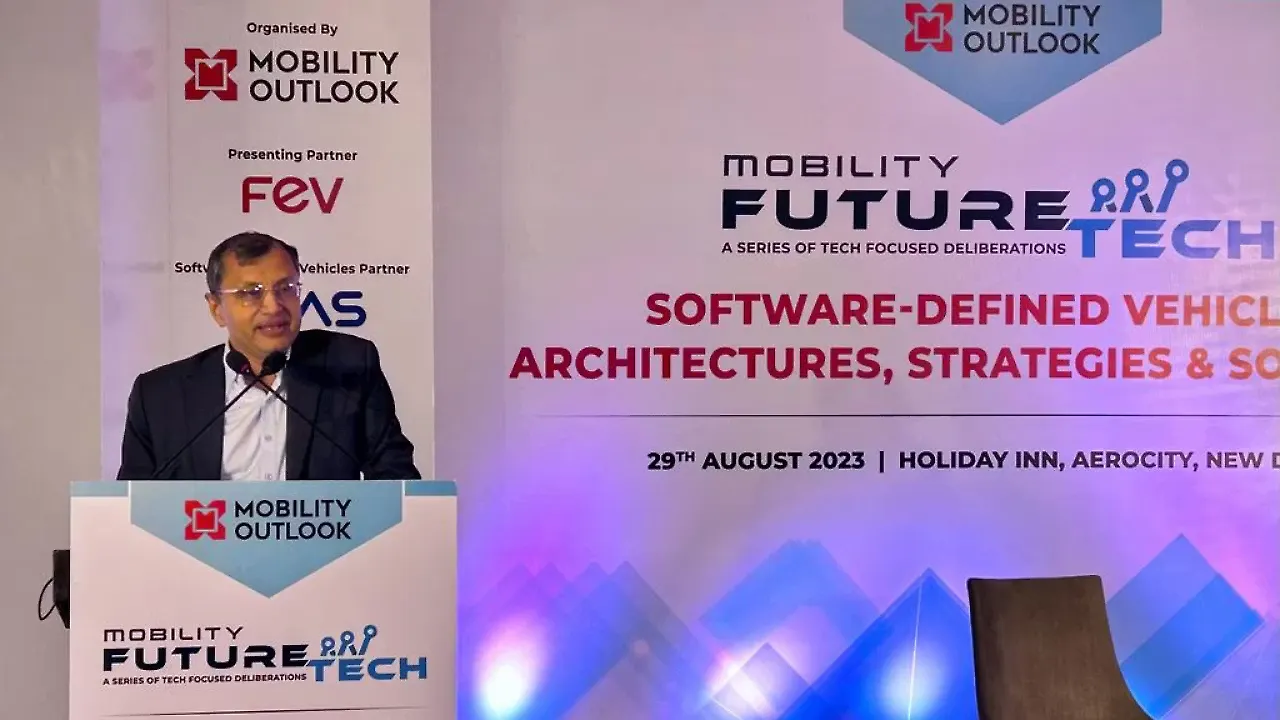
Software-defined vehicles will change the landscape of the automobile industry in the next 10 years, said Tarun Garg, COO, Hyundai Motor India, at the Mobility FutureTech, organised by Mobility Outlook.
With software playing a pivoting role in every sphere of life, he added that SDVs have the capability to transform not just auto but the transportation industry with V2X capability and the emergence of smart cities.
While traditionally automobiles have always been hardware-centric, the future will see software play a key role various spheres. It will “bring a new universe” in terms of customer experience and with growing software integration in Hyundai India vehicles, the team here was surprised to see how customers reacted so positively to the offerings.
While software is used for connected features such as remotely controlling vehicles, for instance, it will add numerous opportunities for personalisation for vehicles in the future. While there are around 4.25 lakh connected vehicles on Indian roads, Garg said more than 20 million connected vehicles will be present globally by 2025.
Besides the feel good factor, SDVs will also enhance safety with functionalities like ADAS. As the Hyundai COO pointed out, even in relatively lower end products like Verna, 40% of its sales were taken up by variants with ADAS. On a lighter note, he added that his driver of 16 years was initially hesitant to use the ADAS functionalities of the Tucson but has come a long way since and has comfortably adapted to them now.
Software integration will also help OEMs to work on improving vehicle performance post-sales with OTA (over-the-air) updates. Congestion problems in metro can also be solved with SDVs as they will provide real time traffic updates to drivers and suggest options for alternative routes. According to Garg, besides enhancing customer experience, development costs will reduce with increased software components and virtualisation in terms of testing.
Hyundai’s Take On SDVs
With a firm belief that the future holds great potential for SDVs, Hyundai Motor Group has committed to invest $13.6 billion by 2030 on software capability development. Amidst this once- in-a-100-year transformation, the automotive industry has seen a bigger change “in the last 30 months than in the last 30 years”. Defining future vehicles as computers on wheels, Garg said vehicle makers should upgrade and adapt their software according to user requirements.
Also Read
ADAS Can Aid Intervention For Active Safety Given Its Customised For Indian Solutions: Experts
Global Automotive Software Market To Grow At 13.1% CAGR Till 2027